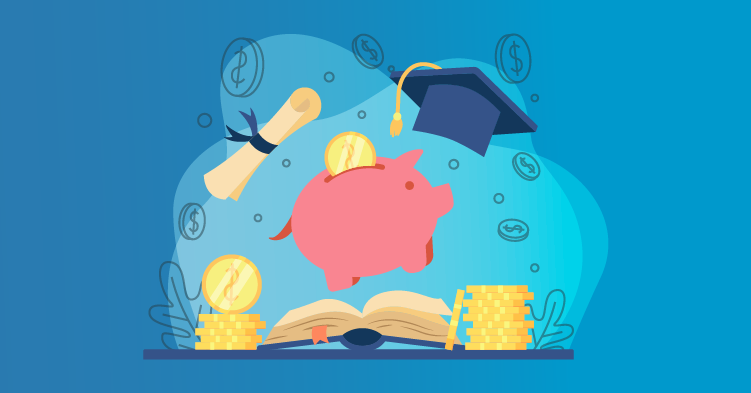If you’re worried about fitting your student loans back into your budget, you’re not alone. Tens of millions of Americans have student loan debt and will be affected by payments restarting in October. Adding a bill to your monthly expenses can put a squeeze on your finances, but there are a few things you can do to help make your payments.
What Happens if I Don’t Pay My Student Loans?
There are a few things that can happen if you fail to pay your student loans. If you go into default, you may lose your eligibility for deferment, forbearance and the repayment plans; your wages, tax refunds or federal benefits may be garnished; or your loan servicer could take you to court. Your credit score could also be negatively impacted. Student loan servicers typically report to the credit bureaus, meaning late and missed payments may appear on your credit report.
Reach Out to Your Loan Servicer — ASAP
Whether you have federal student loans or private student loans, if you’re going to miss a payment, consider reaching out to your loan servicer or lender as soon as possible. They can help walk you through their repayment plans and hopefully help keep you out of default. The earlier you contact them, the more options you’ll likely have.
See if You Qualify for Deferment or Forbearance
Deferment and forbearance allows borrowers to pause payments for an extended period. If you’re experiencing financial hardship or meet one of the other eligibility standards, you may be able to qualify.
You can request a deferment or forbearance by contacting your student loan servicer. You can find information about your student loan servicer by logging in to your Federal Student Aid account, or by calling 1.800.433.3243.
Deferment. It may be more difficult to qualify for deferment. Your loan servicer will likely ask for documentation to show that you meet the eligibility requirements. A few examples of situations where you may qualify include:
- You receive a means-tested benefit like TANF.
- You receive unemployment benefits.
- You are undergoing certain types of medical treatment.
- You’ve returned to school.
Forbearance. There are two types of forbearance — general and mandatory. You can request a general forbearance from your loan servicer if you’re facing financial difficulties, you have medical expenses, your employment status changes or other reasons acceptable to your loan servicer. Situations in which you may qualify for mandatory forbearance include things such as volunteering for AmeriCorps or serving in a medical or dental residency.
Keep in mind that depending on the circumstances, interest may still accrue and if you’re working towards student loan forgiveness, the deferment or forbearance period may not count toward the necessary payments.
Look at the Different Repayment Plans
If you have federal student loans, you may qualify for one of their income-based repayment plans. These can help you lower your monthly payments. They’re calculated to be affordable based on your income and family size. You can find more information at studentaid.gov.
Saving on a Valuable Education Plan (SAVE). The SAVE plan calculates your monthly payment based on your income and family size. It provides the lowest monthly payments of any of the income-driven repayment plans.
Pay As You Earn (PAYE). The PAYE plan caps your monthly payments at 10% of your monthly discretionary income.
Income-Based Repayment (IBR). The IBR plan is a plan with payments that are equal to 10% or 15% of your monthly discretionary income, depending on when you took out your loans.
Income-Contingent Repayment (ICR). The ICR plan offers either what you would pay on a repayment plan with a fixed schedule over 12 years adjusted based on your income, or 20% of your discretionary income — whichever is lower.
Check to See if You Qualify for Loan Forgiveness
If you meet certain requirements, you may qualify to have your loans or a part of your loans forgiven. Some examples where you may qualify include:
- If you’re a teacher.
- If you work for a federal, state, local or tribal government organization.
- If you work for a nonprofit organization.
- If you have a disability.
Research How You Can Boost Your Income
You may also be able to find ways to increase your income in order to have a little more breathing room when your payment is due. Here are a few ideas:
Create a budget. People avoid budgeting for many reasons — but it’s not as hard as you may think. There are tons of free budgeting apps that can help you get set up and track your spending. Look at your last few months of expenses and calculate how much you spend on average on things like housing, food, transportation, etc. Try to stay within these limits each month and if possible, set some aside in savings.
Get a side hustle. If you want to earn some extra income, look into getting a part time gig. Local businesses are often looking for part-time help, or you could look into options that give you a flexible schedule like driving for a ride-share or food delivery service. You can also find great opportunities on online job boards.
DISCLAIMER: This content is for educational and informational purposes only, and is not intended as financial, investment, or legal advice.




